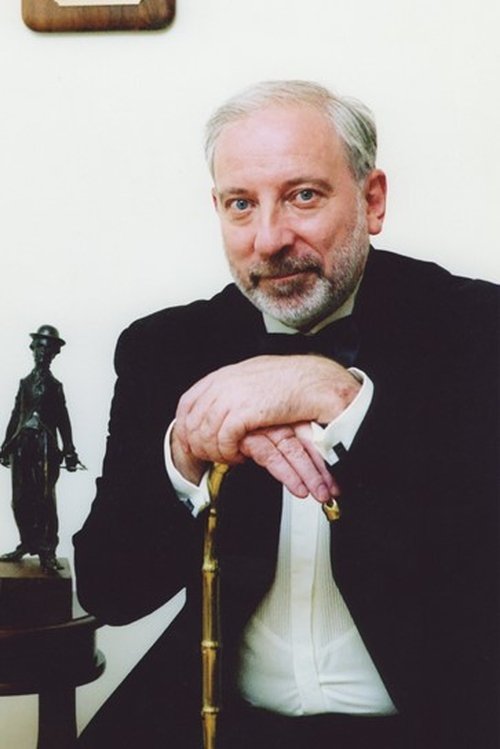
Popularity: 0.721
Yuri Mamin
A.K.A:
Юрий Мамин - Yuri Borisovich Mamin - Юрий Борисович Мамин -1946-05-08
Male
Leningrad, USSR (St. Petersburg, Russia)
http://yurimamin.com/RU/4/
Biography
Yuri Borisovich Mamin (Russian: Юрий Борисович Мамин; born 8 May, 1946; Leningrad) is a Soviet and Russian filmmaker, stage director, screenwriter, composer, actor, author and television host, Honored Art Worker of the Russian Federation. His "Window to Paris" (1993) remains one of the most popular movies in Russia. His Buddhist-themed film "Don't Think About White Monkeys" (2008) is popular among the Russian noncomformist youth, including punks and rockers. Yuri Mamin is the only person in Russia to have won the Chaplin's Golden Cane award. The award was presented by Charlie Chaplin's widow, Oona Chaplin, at the festival marking 100 years since the birth of the great comedian. The festival was held in the Swiss city of Vevey, where Chaplin was buried. Mamin's works are known for a strong emphasis on social justice and criticism of hypocritical social norms. Because of this, he found difficult to find support for his productions in the totalitarian USSR, as well as in today's Russia, where film makers became dependent on corporate oligarchy. His characters often portray an inspired citizen in the fight for social justice against corporate capitalism. Yuri Mamin began his directing career under the communist regime. He was never a communist and was always opposed to the oppressive power of the Communist Party. Because of this, he could not create his films until the beginning of Perestroika in 1985 and Mikhail Gorbachev's arrival to power. His works are popular among alternative socialist groups who criticize both capitalism and the Soviet system. The Gorbachev period ended in 1991 and Yuri Mamin again became a persona non grata for the criminal tycoons who almost immediately took over all the leading positions in Russian cinema and mass media. From the early 1990s, a group of official Russian film critics, controlled by the regime, began a period of notorious denigration of the film director and his art. Against this background, Mamin's films won the love of audiences throughout the nation. Almost all of his films received numerous grand prizes and other awards.
